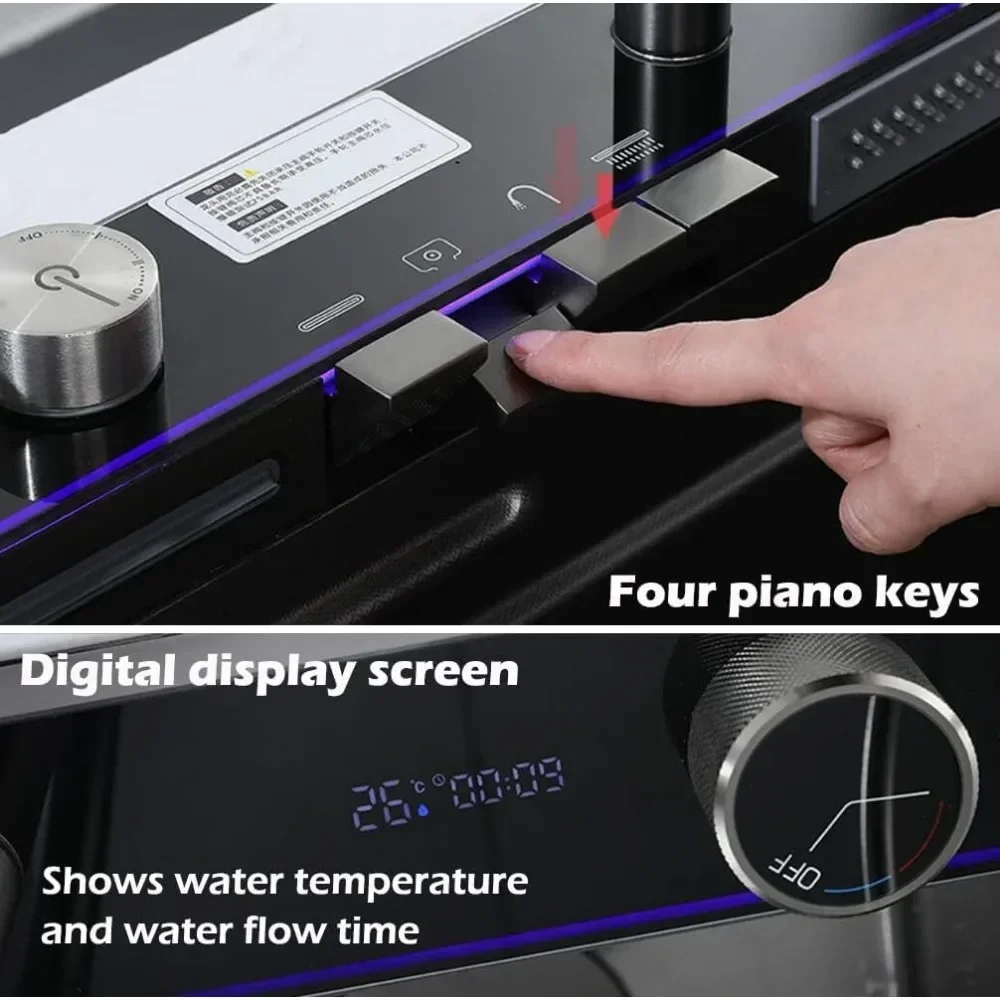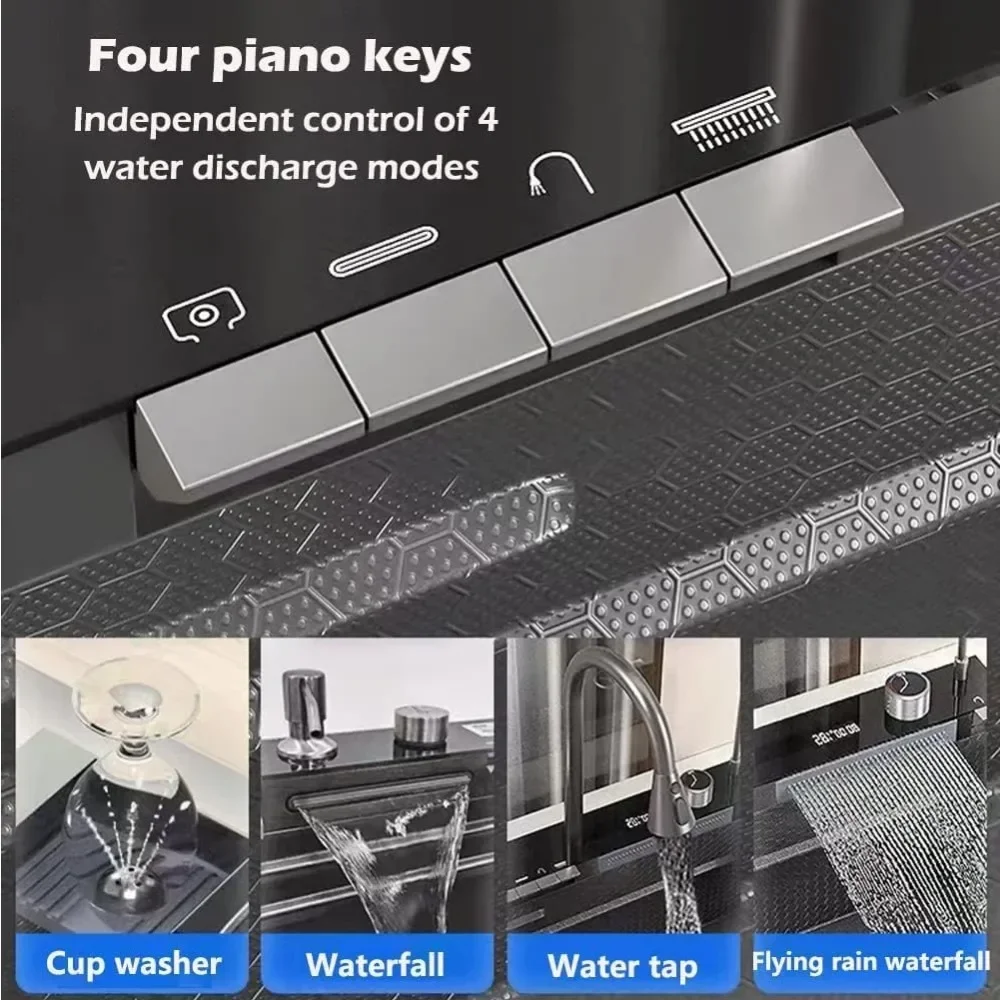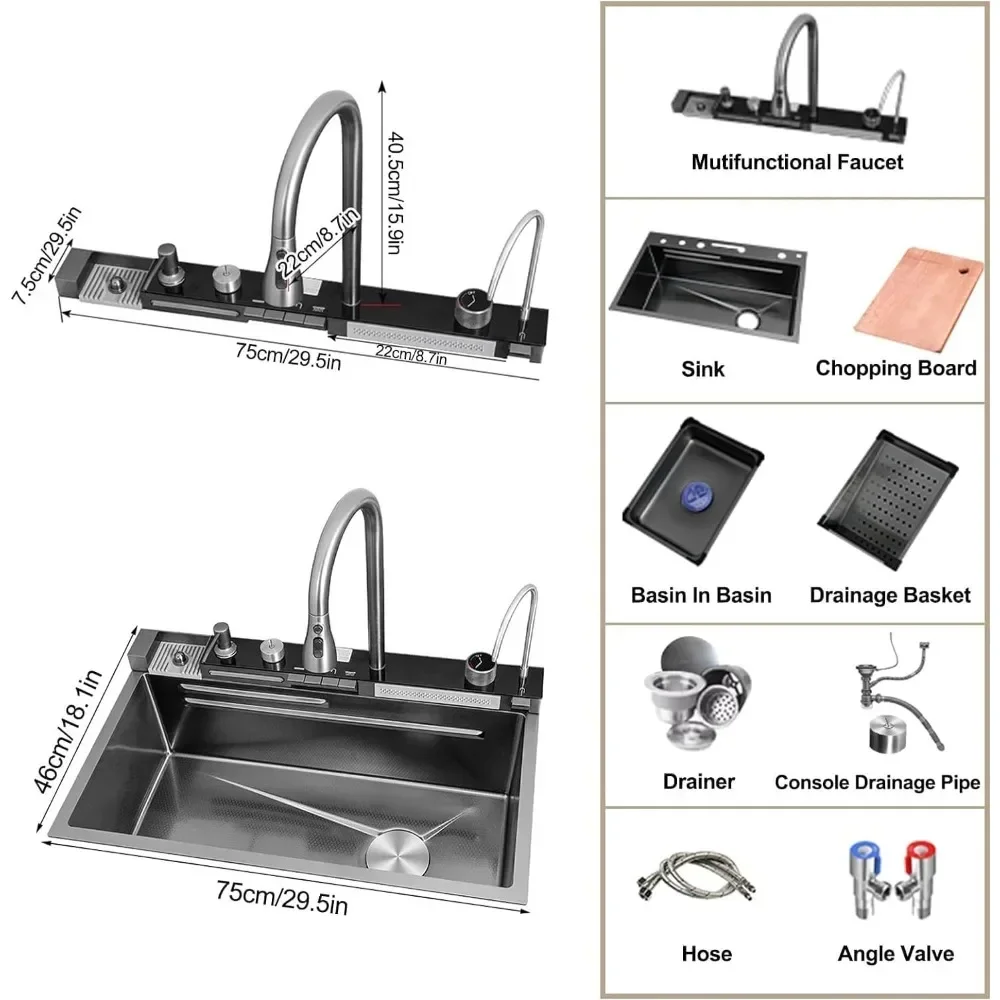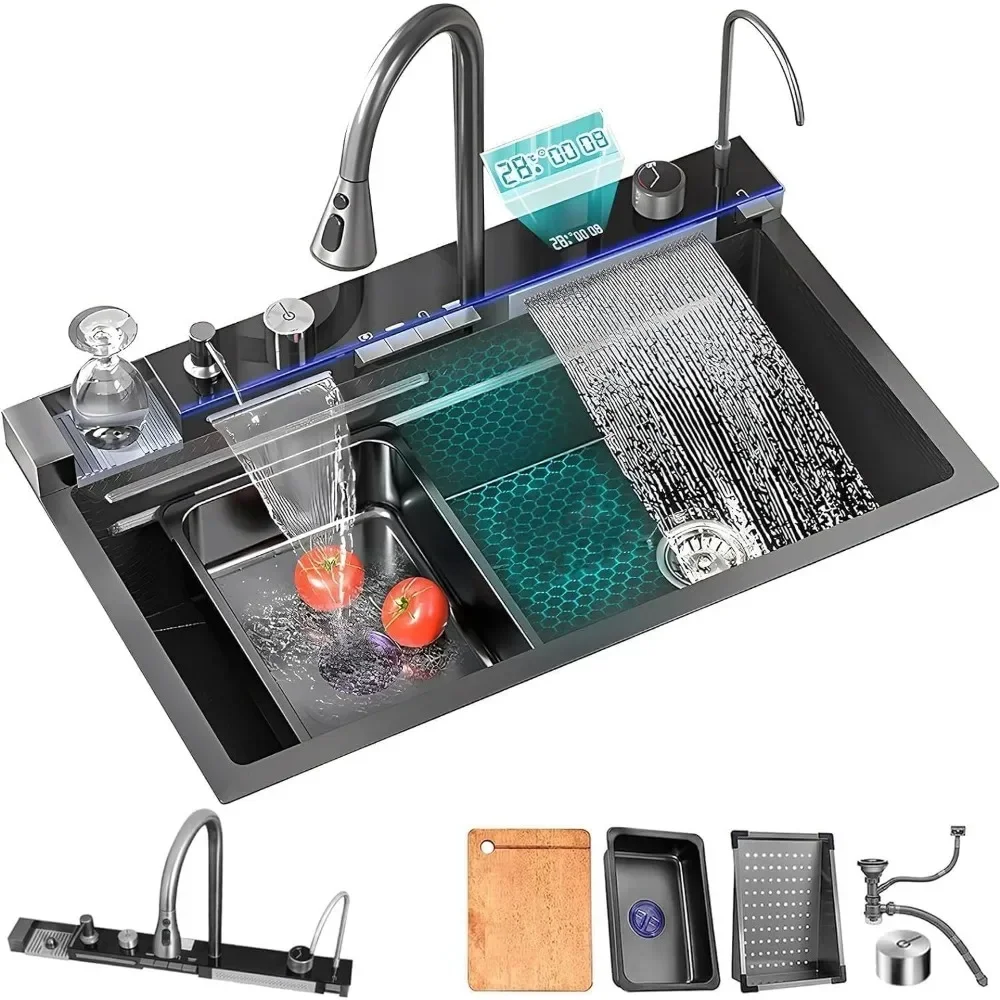Introduction to Eco-Friendly Sinks
Choosing the right sink for your kitchen renovation is not just about style and practicality. It’s also about picking sustainable options that align with eco-friendly living. In this section, we’ll explore the significance of sustainability in kitchen design and why it matters more than ever.
The Importance of Sustainability in Kitchen Design
Sustainability in the kitchen goes beyond energy-efficient appliances or reducing waste. It includes selecting materials that don’t harm the environment. Eco-friendly sinks are an essential part of this. They last longer, reduce the need for frequent replacements, and often come from recyclable or renewable sources. As we become more environmentally conscious, choosing sustainable materials for kitchen sinks is a key step in designing a kitchen that aligns with our values for a healthier planet.

Factors to Consider When Choosing an Eco-Friendly Sink
When picking a sink for your eco-friendly kitchen, there is a lot to ponder. You should consider sustainability, durability, and ease of maintenance. Make a choice that stands the test of time and supports the environment.
Material Durability and Longevity
Opt for materials known for enduring lots of use. Highly durable sinks mean fewer replacements, reducing waste and saving resources. Look for stainless steel, fireclay, or composite options that provide strength and longevity.
Environmental Impact of Sink Materials
Pick sink materials with low environmental footprints. Renewable or recycled resources are best. Materials like copper and stainless steel can be 100% recyclable, minimizing their impact on the planet.
Maintenance and Care for Sustainable Sinks
Think about the daily upkeep of your sink. Eco-friendly materials usually need less harsh cleaning. Natural cleaners like vinegar and baking soda can often do the job well. Avoid materials that need strong chemicals for maintenance.
Types of Eco-Friendly Sink Materials
Choosing eco-friendly materials for your kitchen sink not only supports sustainability but often offers enhanced durability and style. Here’s a look at some of the best options available.
Stainless Steel: Recyclable and Durable
Stainless steel sinks are 100% recyclable, making them a great eco-friendly choice. They resist rust, stains, and heat, and are very durable. With proper care, they can last for many years, reducing the need for replacement.
Fireclay: Long-Lasting and Timeless
Fireclay sinks boast a timeless appeal and are incredibly long-lasting. They’re made by firing clay at high temperatures, creating a non-porous and durable material that resists stains and scratches.
Copper: Natural Antimicrobial Properties
Copper sinks not only have a unique aesthetic but also natural antimicrobial properties. Over time, they develop a patina that adds to their character. They’re recyclable and considered highly sustainable.
Stone and Stone Composite: Nature-Inspired Elegance
Stone sinks, including those made from granite or quartz, add natural elegance to any kitchen. While pure stone is heavier and requires sealing, stone composite offers a more lightweight and low-maintenance option with similar visual appeal.
Composite: Affordable and Sustainable Options
Composite sinks, made from a mixture of stone dust and resin, are an affordable and sustainable choice. They’re durable, easy to maintain, and available in a variety of colors and styles to match any kitchen decor.

Installation and Support for Heavy Sinks
When installing heavy sinks, the right support is crucial to avoid damage to your cabinets.
Reinforcing Cabinetry for Sustainable Sink Materials
Some eco-friendly sink materials, like stone composites or fireclay, are quite heavy. Before installing, check if your cabinetry can handle the weight. If not, you may need to reinforce them. This might include adding extra support beams or brackets to the cabinet structure.
Ensure any modifications fit within your kitchen design and don’t compromise cabinet space or functionality. Always seek professional advice if unsure about the necessary support for your new sink. Proper installation will ensure a secure, sustainable addition to your eco-friendly kitchen.
Caring for Your Eco-Friendly Sink
Caring for an eco-friendly sink helps maintain its appearance and functionality. With the right care, these sinks can serve your kitchen needs while being kind to the environment.
Tips for Daily Maintenance
Regular upkeep is key to keeping your eco-friendly sink in top condition. Here are some simple steps:
- Rinse the sink after each use to prevent stain buildup.
- Wipe it dry to avoid water spots, especially on stainless steel.
- Use a soft sponge with mild soap for cleaning.
- For tougher stains, apply baking soda paste and gently scrub.
- Routinely check for any signs of wear and address them promptly.
Adhering to these tips will help sustain your sink’s durability and shine.
Avoiding Harsh Chemicals and Abrasives
Your eco-friendly sink’s material quality may be compromised by strong cleaners. Here’s how to avoid damage:
- Shun harsh chemicals, opting for natural cleaning agents like vinegar or lemon juice.
- Avoid abrasive sponges and scouring powders that can scratch surfaces.
- For disinfecting, a mix of water and vinegar can be effective.
- For unclogging, try a plunger or a mixture of baking soda and vinegar.
By using gentle cleaning methods, you can preserve your sink and reduce your environmental footprint.
Cost-Effectiveness and Value of Eco-Friendly Sinks
When it comes to kitchen renovations, the value and cost-effectiveness of materials are just as crucial as their sustainability. This section will delve into how eco-friendly sinks not only benefit the environment but also offer significant long-term savings and can positively influence your home’s resale value.
Long-Term Savings with Durable Materials
Choosing eco-friendly sink materials can lead to substantial savings over time. Materials like stainless steel, fireclay, and composites are not only durable, reducing the need for frequent replacements; they also often require less maintenance. By investing in a high-quality eco-friendly sink, you can save on future costs for repairs and replacements. Additionally, the natural resistance of these materials to wear and staining means less spending on expensive cleaning products.
Impact on Home Resale Value
Aside from immediate cost-saving benefits, eco-friendly sinks can boost your home’s resale value. Today’s buyers are increasingly looking for sustainable features in homes. An eco-friendly, well-maintained kitchen sink can be a strong selling point. It reflects the overall quality and sustainability of your home. When the time comes to sell, this feature can set your property apart and potentially increase its market value.
Overall, by choosing eco-friendly sink materials, you are not only making a choice that’s good for the planet but also financially beneficial in the long run. You’ll enjoy the savings during your stay in the home and potentially benefit from a higher resale value when you decide to move on.

Conclusion: Making the Eco-Friendly Choice for Your Kitchen
Choosing an eco-friendly sink is a smart move. You support the environment and add value to your home. Selecting the right material has a lasting impact, considering both sustainability and cost-effectiveness. Remember the big picture: every small choice adds up to create a more sustainable home.
Eco-friendly sinks from materials like stainless steel or fireclay stand up to daily use. They look great years on with little care. Investing in these options means fewer replacements, less waste, and more savings. It’s a choice that pays off in the long run, both for your wallet and for the planet.
A kitchen with a sustainable sink can also attract buyers. It shows commitment to eco-living and can boost your home’s value. If resale is in your plans, this is a feature that makes your property stand out.
In summary, when planning your kitchen renovation, think green. Choose sinks made from materials good for the earth. The benefits are clear: durability, lower costs over time, and a positive impact on your home’s value. Make the eco-friendly choice. It’s a win-win for you and the environment.
